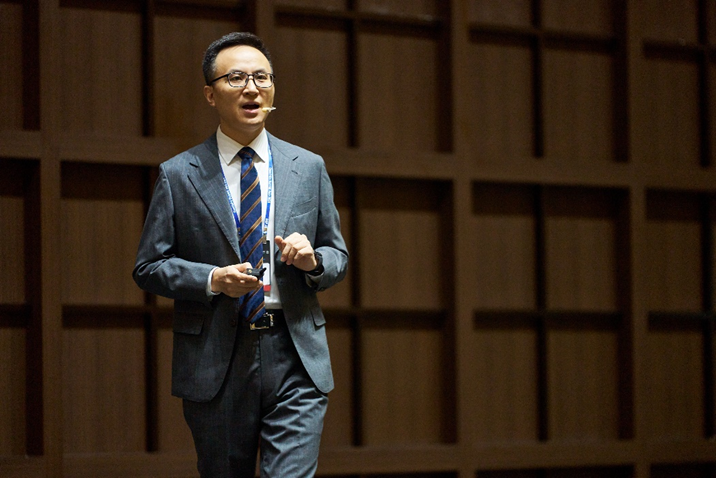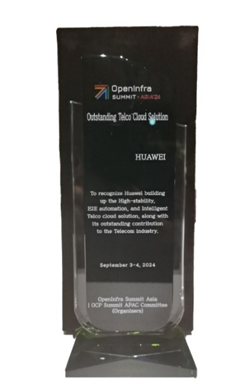The recent OpenInfra Summit Asia, held in Suwon, South Korea, attracted leading tech experts from across Asia. The summit highlighted the latest advancements in cloud computing, open-source technologies, and the telecom industry. A standout moment was the keynote speech by Lin Wei, President of Telco Cloud &5G Core, Huawei Cloud Core Network Product Line, titled "Empowering the Future: The Rise of Telco Cloud-Native." He discussed the evolution of NFV technologies and Telco Cloud, and outlined future innovation directions.
Lin Wei began by examining the history of NFV technologies, noting that since the ETSI ISG NFV was founded in 2012, telecom networks have officially embarked on a path to cloudification. As ICT technologies converge, Telco Cloud is evolving towards containerization and E2E automation. With the rise of generative AI technologies, especially ChatGPT, Telco Cloud + AI has become a buzzworthy subject for operators.

Lin Wei,
President of Telco Cloud &5G Core, Huawei Cloud Core Network Product Line
In the speech, Lin Wei pointed out three key directions of Huawei's telco cloud-native practices.
High Stability
He first emphasized that the essence of telecom networks requires operators to maintain high stability, regardless of technological advancements. Global operators are prioritizing high stability as their core strategy, while industry organizations are developing high stability standards to help operators enhance network stability. Huawei Telco Cloud is the first in the industry to achieve Level-3 stability in the core network field. This achievement allows for the early detection and prevention of suboptimal issues, self-healing of deterministic problems to prevent further incidents, and ensures that services can still be switched over and continue to run as usual in fault scenarios.
E2E Automation
Lin Wei emphasized that practical experiences confirm the crucial role of E2E automation for operators to realize the value of cloudification. He highlighted Huawei's committed efforts in network change and O&M, including:
Visible, manageable, and controllable services: Ensuring agile delivery across all domains and processes.
Unified O&M: Providing cross-layer, cross-domain, and full-stack automation capabilities. By leveraging a unified cloud-network topology and resource management, it delivers industry-leading capabilities for cross-layer fault demarcation.
Unified cloud infrastructure: Designed with a dual-engine architecture for unified management of both VMs and containers. This architecture supports the independent deployment of different services, on-demand OS upgrades, and shared network and storage resources.
Additionally, Telco Cloud offers advanced AI computing power to optimize performance and reduce costs for Telco Cloud services.
Intelligent Use
Lin Wei also articulated the importance of intelligence in telecom operations. Based on the telecom foundation model, Huawei provides three types of digital experts for different O&M scenarios of operators: ConfigSpirit, FaultSpirit, and CompSpirit. In practical applications, these digital experts have significantly improved complaint handling efficiency for operators, reducing labor costs and showcasing the promising future of AI in the telecom field.

Outstanding Telco Cloud Solution award at OpenInfra Summit Asia
Huawei received the Outstanding Telco Cloud Solution Award at the summit. This is a recognition of Huawei's Telco Cloud solution by the OpenInfra community. And this award acknowledges Huawei's outstanding contributions in promoting and advancing OpenStack in the Telco Cloud field.
This speech provided attendees with an in-depth understanding of the latest development directions of Telco Cloud, laying a solid foundation for future industry innovation and cooperation. As an industry leader, Huawei continues to promote technology innovation and implementation, offering robust support to global telecom operators.

